Search Images
Browse Content (p. 1587)
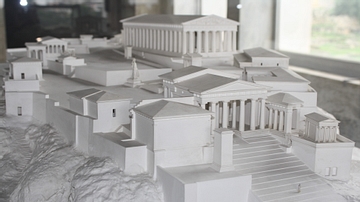
Image
Model of the Athenian Acropolis
A model of the Athenian acropolis in the 5th century BCE. The monumental Propylaea gives access to the Parthenon (centre) and the Erechtheion (left side). (Agora Museum, Athens)
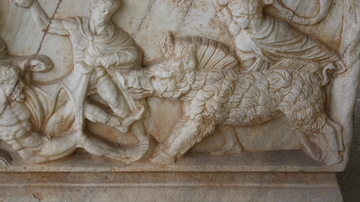
Image
Meleager & the Calydonian Boar
A scene from a Roman sarcophagus depicting the Greek hero Meleager fighting the Calydonian boar. From Nea Ionia (Treis Gefyres). 2nd century CE. (Archaeological Museum, Piraeus, Athens)
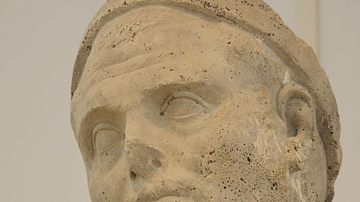
Image
Balbinus
Detail of a statue of Roman emperor Balbinus (Decimus Coelius Balbinus), r. 238 CE. (Archaeological Museum of Piraeus, Athens)

Image
Egyptian Djed
A gilded wooden and faience djed amulet (symbol of stability) from the tomb of Queen Nefertari, 19th Dynasty, 1279-1213 BCE.
Egyptian Museum, Turin.
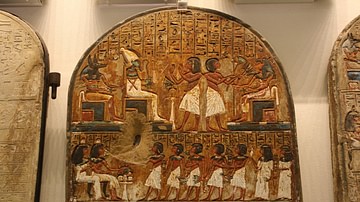
Image
Minhotep & Nakhtmin Relief Stele
A sandstone relief stele depicting in the top panel Minhotep and his son Nakhtmin making offerings to Hathor, Anubis, and Osiris. The middle panel shows Minhotep and his wife Nefertari. The bottom panel shows Nakhtmin and his wife Sekhmet...
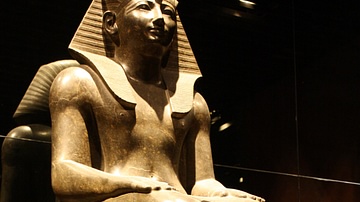
Image
Thutmosis III
A diorite statue of Thutmosis III. From the Temple of Amun, Thebes. Dynasty XVIII, 1479-1425 BCE. (Egyptian Museum, Turin)

Image
Ramesses II Seated Statue, Thebes
Statue of a seated Ramesses II, holding the royal sceptre and wearing the khepresh war helmet, from the Temple of Amun, Thebes, Egypt, 19th Dynasty, 1279-1213 BCE.
Egyptian Museum, Turin.
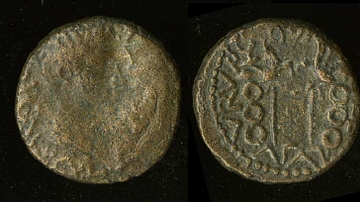
Image
Bronze coin 6-4 BCE
Bronze coin minted in Berytus, showing Augustus on one side and two aquilae between two standards on the back. The obverse inscription reads Imperator Caesar Augustus, the reverse Publius Quinctilius Varus.

Image
The Moon
The full Moon.
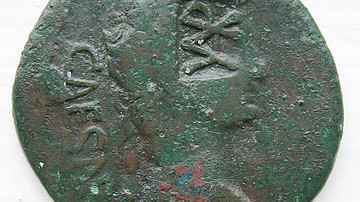
Image
Coin Inscribed VAR(us)
As Lugdunum I (RIC 230), head of Augustus (r. 27 BCE - 14 CE), countermarked "VAR" (Varus).